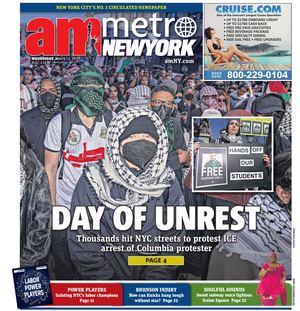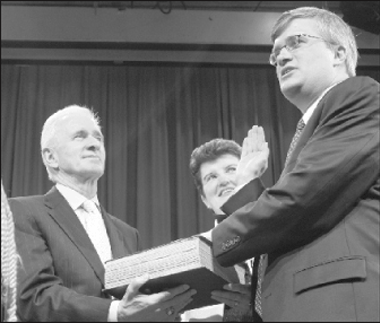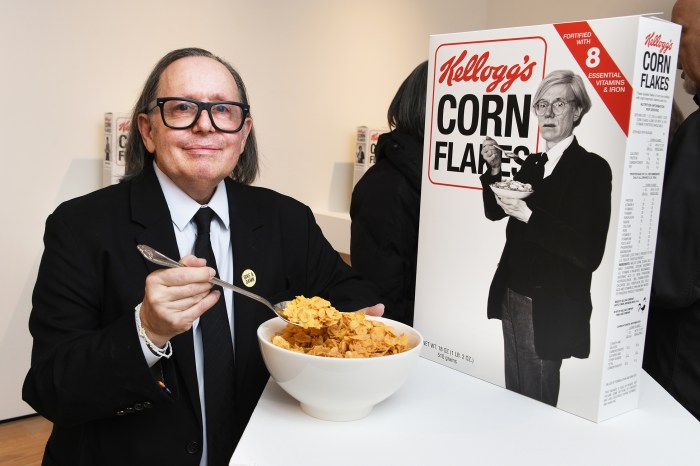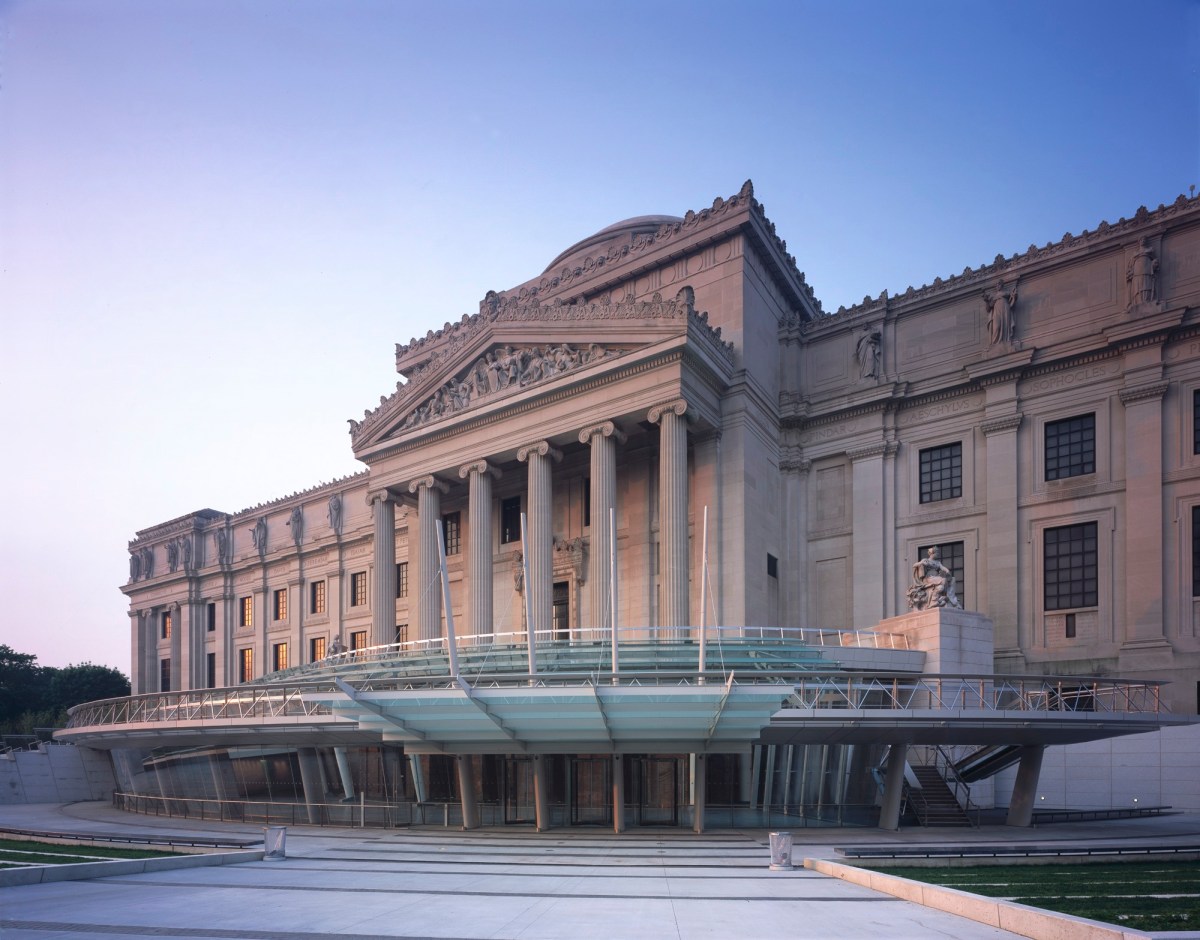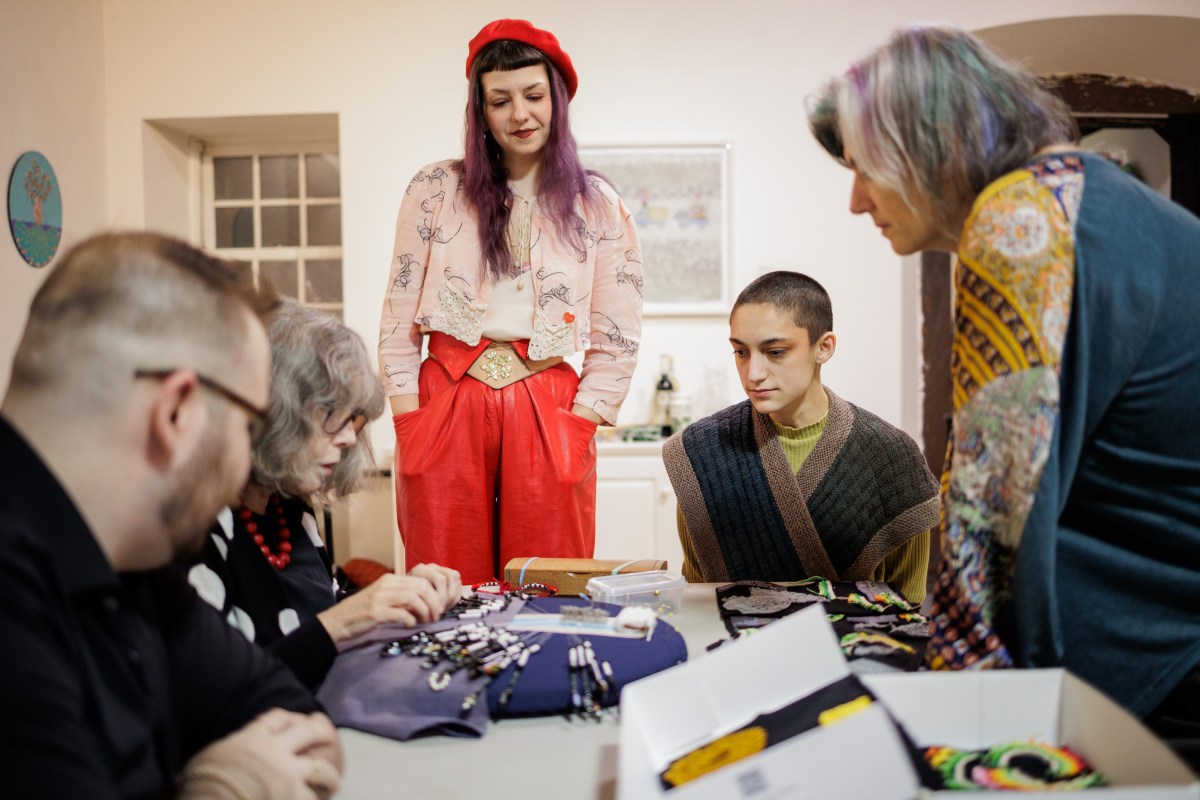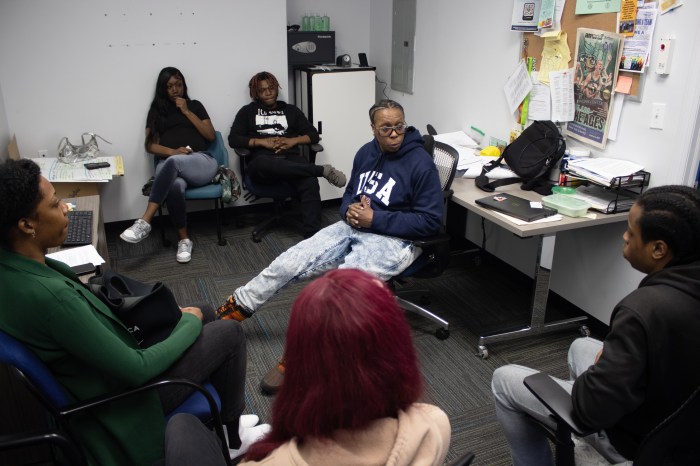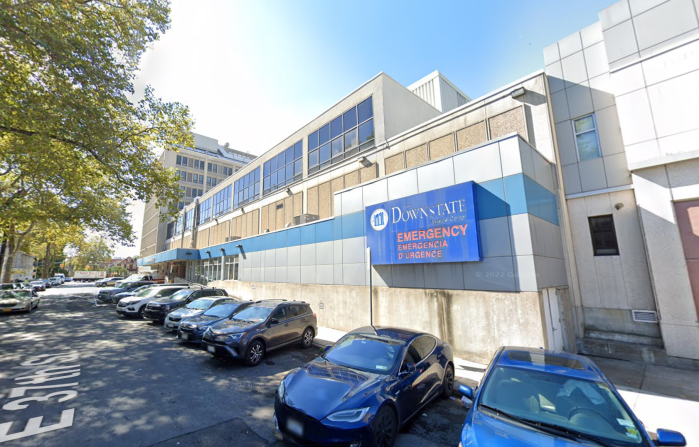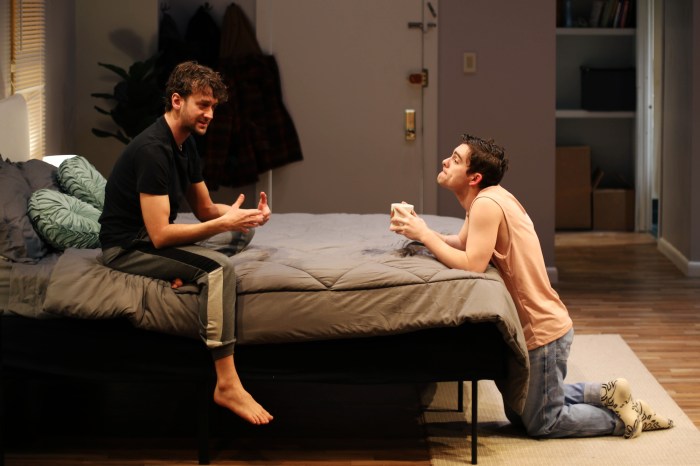By Lincoln Anderson
Despite the freezing weather and impending Super Bowl later that evening, more than 150 people turned out at The Cooper Union’s Great Hall last Sunday afternoon to celebrate Brian Kavanagh’s swearing in as the new 74th District state assemblymember.
Kavanagh defeated the incumbent, longtime Gramercy area politico Sylvia Friedman, last year in the September primary and again in the November general election. Following Assemblymember Steve Sanders’s resignation after 28 years in office, Friedman had won the seat last March in a special election — which Kavanagh strategically chose to sit out.
The 74th District stretches from East Midtown to the Lower East Side.
The swearing-in ceremony was open to the community, with more than a dozen elected officials on hand to toast — and, sometimes, roast — Kavanagh and wish him success. The officials included Senator Chuck Schumer; Congressmember Carolyn Maloney; City Comptroller Bill Thompson; Borough President Scott Stringer; Nassau County Democratic Leader Tom DiNapoli; State Senator Tom Duane; Councilmembers Rosie Mendez, Alan Gerson and Gale Brewer; State Committeeman Michael Farrin and District Leader Anthony Feliciano. Assemblymember Jonathan Bing, who represents the district north of Kavanagh’s, was emcee.
The politicians and other speakers praised Kavanagh for his intellect and work ethic, sense of humor and touch with people. Several noted that Kavanagh, by going into politics, has chosen to forgo “big bucks” in the private sector.
One of a family of six children from Staten Island, Kavanagh, 40, attended Princeton University, as did three of his siblings. While his four brothers all work in finance, he chose a different path. After a stint as a City Hall staffer, Kavanagh got a law degree from New York University School of Law, then returned to politics, working for Upper West Side Councilmember Brewer.
His father, John, an Irish immigrant, was a three-star chief in the Transit Bureau, before it merged with the Police Department. An innovator, he devised tactics to wipe out graffiti in the subways and introduced the department’s first K-9 units. His mother, Eileen, still works part time as assistant to the publisher of the Staten Island Advance and is a community activist.
“Brian Kavanagh worked so hard for so long,” said Schumer. “This isn’t just someone who parachuted in. He was a real powerhouse in the City Council. You can say this about Brian Kavanagh: He got there the old-fashioned way — he earned it. Brian is one of our best.”
Maloney — whom Bing credited with starting the “Blue Revolution” in 1992 that within 10 years saw the Democrats win back the East Side’s Republican-held seats — welcomed Kavanagh to the “Blue Team.” She called him a “pragmatic visionary — because he brings a pragmatic approach to help people.”
Thompson said Kavanagh has been well trained, noting, “I always say, the best elected officials are those who have been staff members. You’ve worked for some of the best,” he told Kavanagh. “He is prepared. He will make us proud.”
In 2005, Kavanagh finished second to Mendez in the Second District Council race, then took on Friedman, who had most of the political support, except for Sanders, who backed Kavanagh. Stringer recalled his own election setbacks.
“When you lose a race and you get up next year and run again, you really have to have your head examined,” Stringer said. “He went to the senior centers in the summer; he had very little institutional support [in the Assembly race].” When he was an assemblymember, Stringer led a reform movement in Albany, and he predicted Kavanagh will follow his lead.
“He’s ready to go,” Stringer said. “He understands that there needs to be fundamental change in Albany.”
Said Duane, “The district that Brian is representing is really, really demanding, because the people in the district are really intelligent and demand the best — and Brian fits the bill perfectly.” On a lighter note, he advised Kavanagh to take “the white sauce, not the red sauce” at Woodbury Commons when driving back and forth to Albany, and not to drink the state capital’s water, because “it makes you conservative.” Also, Duane offered some factoids he’s learned Upstate, such as, for example, that New York is number one in the U.S. in pumpkin production.
When he was younger, Kavanagh tutored middle-schoolers at the Lower East Side’s Nativity Mission Center, later serving on its board. Sister Paulette LoMonaco, a fellow board member, said of Kavanagh, “He became committed to a New York City where all people have equal access to opportunity and education.”
Recalling how he worked so hard that he sometimes slept overnight on a couch at City Hall, Brewer said of her former chief of staff, “He follows his own muse and has a way of making it to the front — but he also has the people’s touch.”
In his own remarks, Kavanagh began by quipping he’ll have to buy some warmer clothes for Albany. He indicated he means business and that he’ll look to shake things up in the Legislature.
“This is an amazingly diverse district with a diversity of races, ethnicities and lifestyles,” he said. “But from Tudor City to the Lower East Side people said they need change in government. By some accounts, we have one of the most dysfunctional state governments in America.” Kavanagh said he’ll work to preserve affordable housing and to create new middle- and low-income housing. He expressed concern over the recent sale — “right in this district” — of Peter Cooper Village and Stuyvesant Town. He said he’ll work to ensure “that education works” and that “growth and development are balanced with the need to preserve open spaces.” He also said he’ll advocate for drawing fair election district lines.
“I have no doubt that you’ll hold me to the highest standards,” Kavanagh told the audience, pledging “to serve our state, our community and our country.”
Not all the comments were so glowing, however. Afterward, State Committeemember Farrin, a power in the Coalition for a District Alternative organization, which supported Friedman over Kavanagh, said Kavanagh was a “liberal” — as in not left enough to be considered “progressive” — and that Kavanagh had, in fact, despite Schumer’s comments to the contrary, “parachuted in” to the district’s political and activist scene.
Since graduating college in 1989, Kavanagh lived first on the Lower East Side, then in the East 20s and, for the last four years, in Murray Hill. He proudly admits he was never a “party insider” and that he had been “to the left of Sylvia [Friedman]” on some issues during the campaign.
Maureen Remacle, head of the Sixth Precinct Community Council, said Kavanagh is genuine.
“I told him [during the campaign] to go out and talk to people,” she said. “Because when he talks to people, you feel he really cares about you.”
